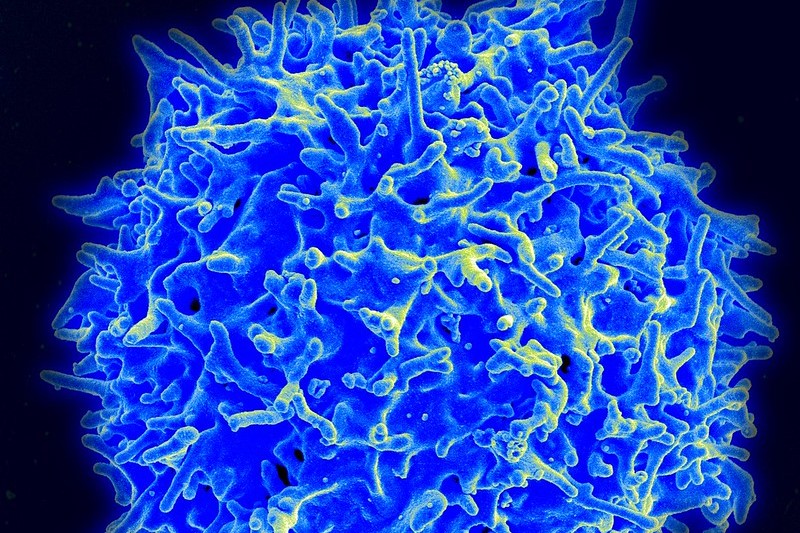
University of Pennsylvania scientists who pioneered advances in cell therapy and messenger RNA have unveiled a new venture aiming to bring cell-based therapies into a new frontier: the engineering of these treatments inside the patient. Capstan Therapeutics sets out on this journey backed by $165 million raised to date from a prominent syndicate of biotech backers, including five large pharmaceutical companies.

With the Rise of AI, What IP Disputes in Healthcare Are Likely to Emerge?
Munck Wilson Mandala Partner Greg Howison shared his perspective on some of the legal ramifications around AI, IP, connected devices and the data they generate, in response to emailed questions.
Capstan’s initial focus is the development of in vivo chimeric antigen receptor, or CAR T, therapies. CAR T-drugs are currently made from a patient’s own T cells, which are engineered in a lab before being infused back into the patient. Penn research led to Kymriah, the Novartis cancer treatment that became the first approved CAR T-therapy.
The Wednesday launch of Capstan comes nine months after publication of Penn research in the journal Science showing that the engineering work can be done inside a body, building on earlier published research showing that cells engineered in a lab can address a cardiac fibrosis target. According to the mouse research published in Science, scientists used mRNA to deliver instructions that reprogram T cells in vivo to recognize damaged heart cells. These cells were able to reduce damage to the heart and restore cardiac function.
[Paragraph updated to clarify Capstan’s CAR T-programs.] Now Capstan, whose scientific co-founders at Penn include cell therapy pioneer Carl June and mRNA expert Drew Weissman, is working to bring this in vivo-engineering to humans. The research described in the published papers is now being further developed for advancement to clinical testing. The published research involved an vivo CAR T-therapy comprised of an intravenously administered dose of mRNA packaged inside a lipid nanoparticle that targets CD5, a protein expressed by T cells. The mRNA encodes an antigen that gets the T cells to go after cells expressing fibrosis activation protein, a fibrosis target. A spokesperson for Capstan said that while the company is actively pursuing an in vivo CAR T-therapy for fibrosis, the target for this program remains undisclosed.
Unlike viral vectors used for some genetic medicines, using lipid nanoparticles will enable redosing of a therapy if needed. That’s because viral vectors trigger the body to produce antibodies, which prevent redosing and can also trigger a dangerous immune response. In addition to the ability to engineer immune cells in the body, Capstan says its approach may also be used to address pathogenic cells by targeting their DNA as a way of treating genetic diseases. Besides fibrosis, Capstan’s other disease targets include cancer, inflammation, and monogenic diseases, which are disorders caused by a variation in a single gene. The company said the goal is for these treatments to be delivered on an outpatient basis.
“Capstan is uniting several recent life science technological advances in a manner that can hopefully unlock the potential of these technologies to develop new medicines for patients across a wider range of diseases,” Weissman said in a prepared statement.
Capstan is not the only company working to develop therapies that perform in vivo work on cells. Precision Biosciences, which has partnerships with Novartis and Eli Lilly, is developing such therapies for inherited blood disorders, liver diseases, and more. Pfizer is pursuing in vivo genetic medicines for diseases of the muscle, liver, and central nervous system under a partnership with Beam Therapeutics. Bayer is exploring in vivo genetic medicines under a partnership with Mammoth Biosciences. Startups have also jumped into the mix with viral vector alternatives that could pave the way for new in vivo medicines.
Capstan is led by President and CEO Laura Shawver, whose experience includes chief executive roles at Silverback Therapeutics and Synthorx. The money behind Capstan breaks down to a $63 million seed financing last November led by Novartis Venture Fund and OrbiMed. RA Capital Management and Vida Ventures joined that investment. Capstan said it recently closed a $102 million Series A financing led by Pfizer Ventures. Joining that round were Leaps by Bayer, Eli Lilly, Bristol Myers Squibb, Polaris Partners, and Alexandria Venture Investments, as well as all of the startup’s earlier investors.














